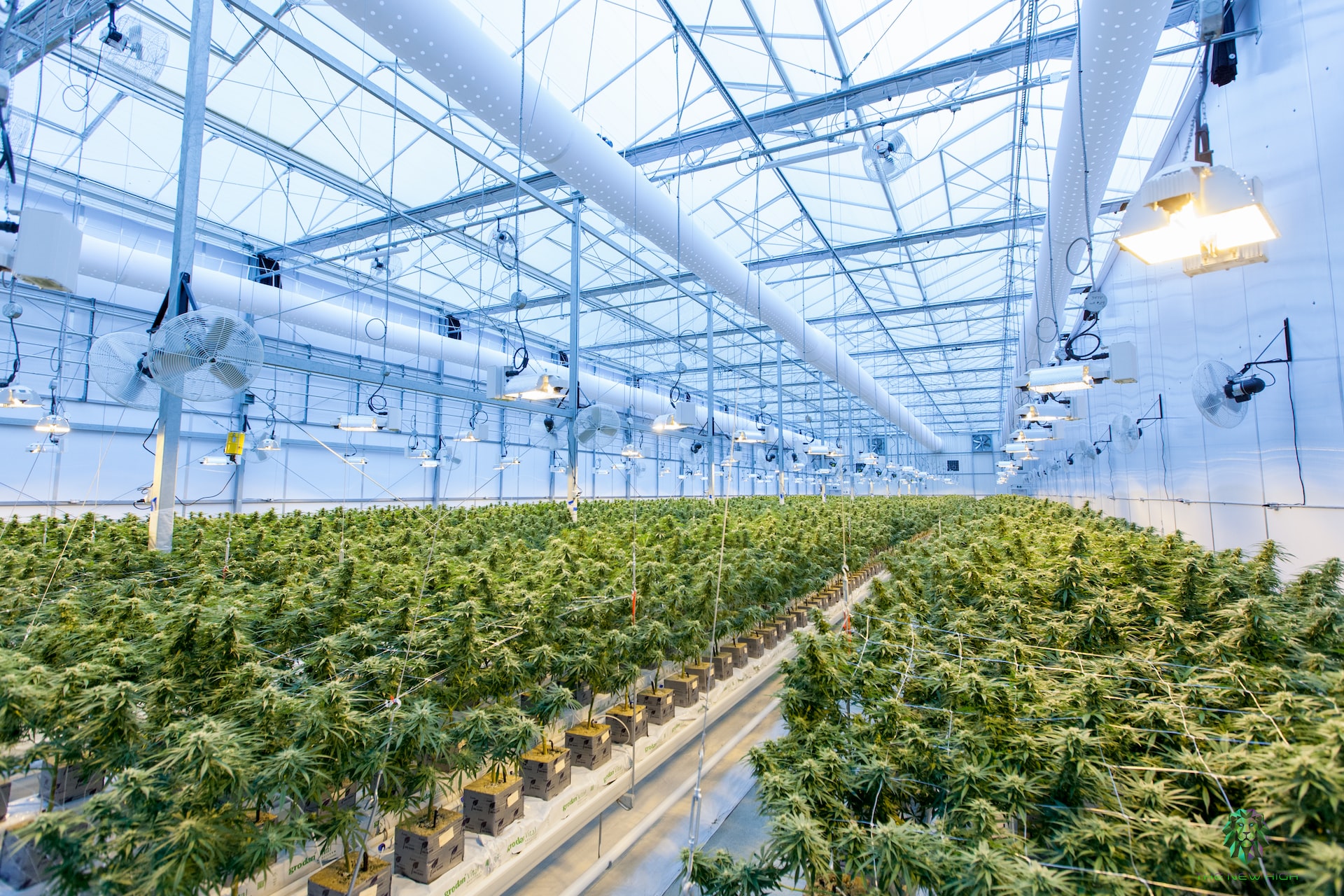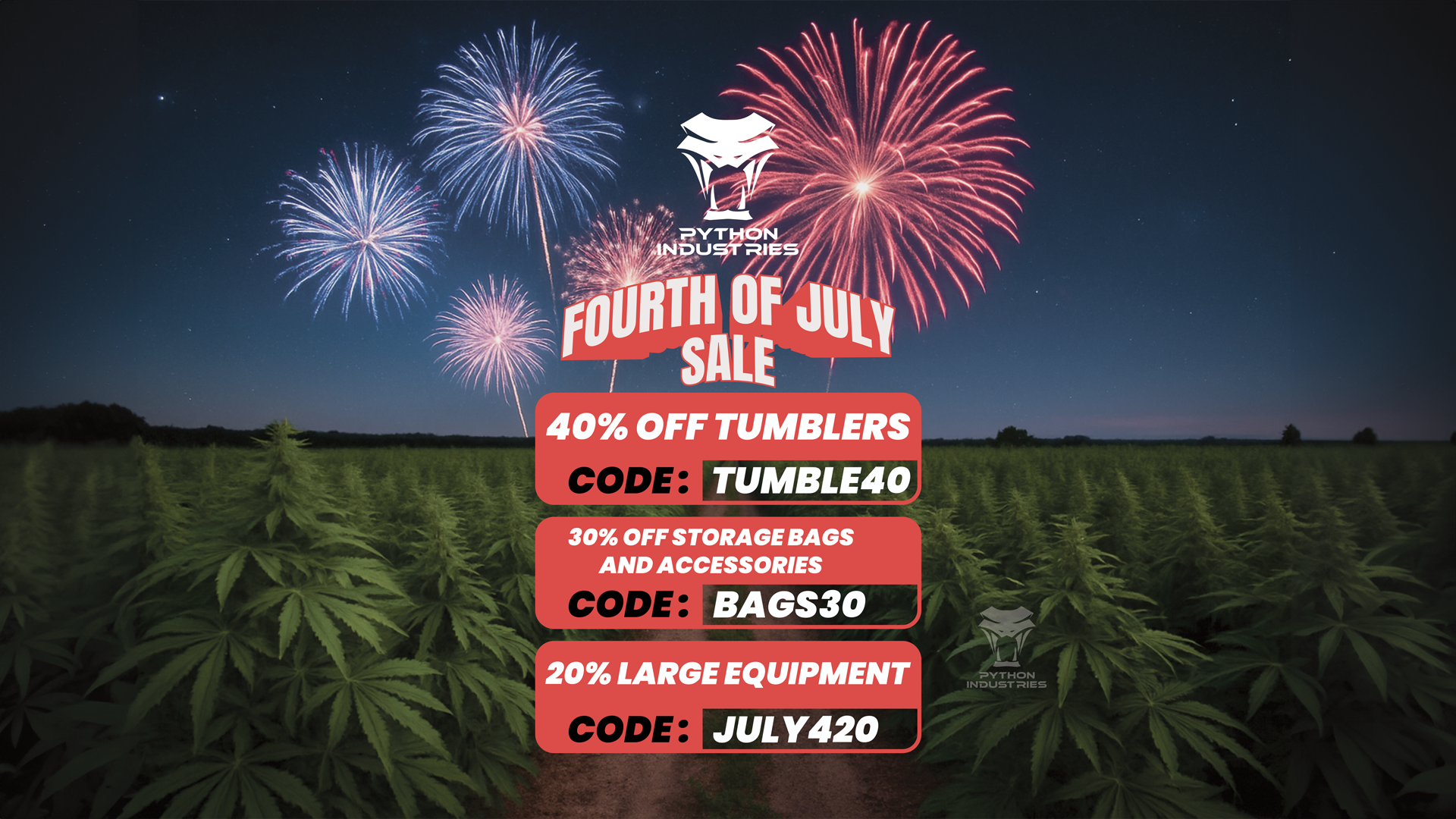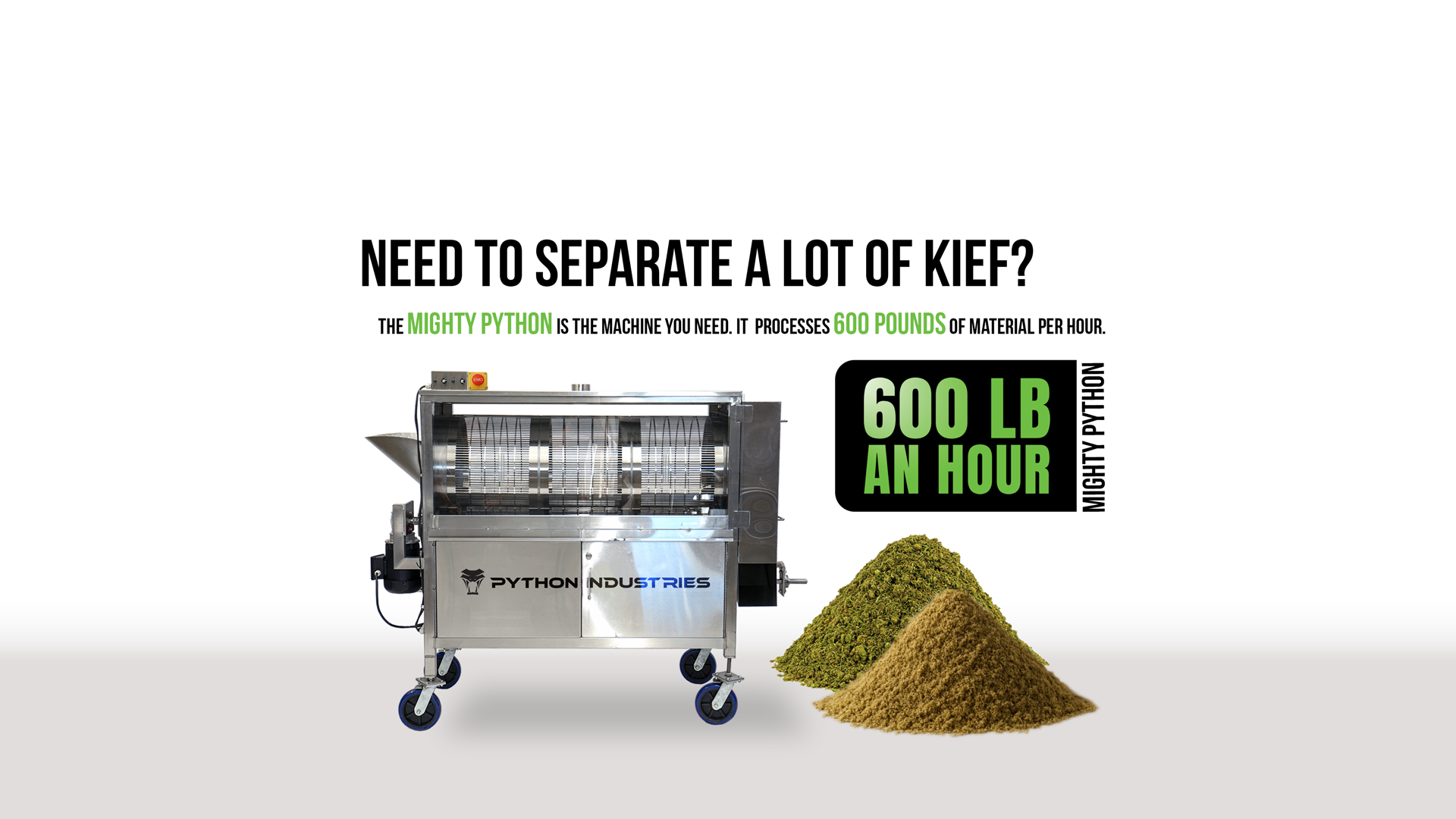Starting a Hemp Business: A Guide to Operations, Growth, and Regulations
Posted by Tom's Tumbler on Oct 4th 2022

Cannabis legalization has begun to open doors for people interested in turning their passion into careers. With hemp markets growing across the United States, opportunities for those looking to elevate their hobby into a business are becoming a reality.
Whether you're starting from scratch or scaling up, it's essential to focus on both the product and your strategy for long-term growth.
Cultivating a phenomenal product is just one piece of the puzzle. Building a sustainable hemp business and scaling growth gives your business the best chance of success. You'll need to understand the local and federal compliance guidelines.
If this sounds like a lot, don't worry. We're here to provide a comprehensive overview to help you get on the right track.
The Business of Hemp
Growers are passionate about their plants. And it can be exciting to think about expanding your product into a more extensive operation and bringing your harvest to market.
As you shift from hobbyist to commercial grower, there are a few things to
consider:
- Starting a hemp business is just like starting any other type of business. It requires a financial investment and can be time-consuming.
- Regulatory investments require thorough research. You'll need to develop an understanding of regulations for local, state, and federal compliance agencies.
- Time commitments are significant and require patience as you dial your operations and product.
If you're going to upscale your current hobby-sized growth, you'll need to start with a business plan. It sounds daunting (maybe even boring), but it's the most crucial thing you can do to ensure that your idea is viable before you invest in your new venture.
A business plan will be your guide, ensuring you notice all the details and helping you plan in advance for any obstacles you may encounter early on.
Writing A Business Plan
A business plan is an evolving document you’ll revisit countless times as you move through the phases of starting a hemp business. This will remain true even after you've successfully launched.
Having a plan to secure licensure, manage regulatory expectations, and engage investors will benefit you in the long run.
Defining Your Business Vision
Having a clear vision is fundamental to the success of your business. Your vision is what you are selling, along with your products. It will set the foundation for everything you do and help you stand out in a competitive market.
Take a moment to reflect on the following questions:
- What is your vision for this company? It would help if you aimed to attract customers who can relate to your vision.
- What is the core belief that drives your business? Your vision will be what you sell alongside your hemp products.
- What differentiates you from the countless other growers? Remember, you need a more substantial reason than "I know how to sell bud."
A clear vision for your business will help engage investors and draw in customers. This will guide your direction and set you apart in a crowded market. It will be your strongest asset in attracting customers who resonate with your mission.
Market Research and Licensing Requirements
Before entering the hemp market, research the market to understand your customer base and make you profitable. Here are a few things to keep in mind :
- Target Market: Understanding your target market helps you reach and connect with your customers.
- Understanding Competitors: Hemp cultivation is a competitive market. Knowing your competitors will help you identify opportunities for differentiation.
- Compliance: Remaining compliant with local and federal regulations is key to longevity. This will involve obtaining the required permits to cultivate and sell products legally.
Compliance is a significant aspect of operating a successful hemp business. You must obtain the correct licenses to cultivate hemp legally in the United States. The first is a hemp cultivation license, granting you legal permission to grow industrial hemp.
Licenses are typically provided by your state's Department of Agriculture or a similar agency. Each state has its own process, so make sure you're familiar with your local jurisdiction's requirements. Always check your state's specific requirements, as regulations can and do vary depending on your city and state.
Financial Projections and Funding
Every successful business knows that to succeed, it needs to be profitable. Financial planning and setting realistic expectations to scale your hemp business are the name of the game.
Look at your anticipated costs and how you plan to manage them. What funding options are available to help you along the way?
Consider exploring loans or seeking out investors who align with your vision. To secure funding, you might consider the following strategies:
- Pitch competitions: These events offer a chance to pitch your hemp business to investors. They're competitive but also a great way to network and connect with industry power players who can provide valuable insight.
- Industry conferences: Network with investors and industry professionals looking to support new ventures.
- Accelerators and incubators: Consider joining one of these for access to funding, mentorship, and valuable resources. Accelerators and incubators are great networking opportunities too.
Once you've secured funding and mapped out your financial plan, dialing in your operations is the next step.
Operations and Scaling Your Grow
Developing standard operating procedures and best practices for your business will define how you expect to cultivate your hemp plants. This will help you maintain consistency with your product.
You’ll also want to explain how you intend to protect your plants from issues that can arise. And how you’ll manage the day-to-day operations and cost-effective remedies for unforeseen situations like power outages and unintended regulatory infractions.
Your operations procedures should also include the processes for when things go according to plan. Explain how you plan to harvest, cure, and trim your commercial size.
Scaling Your Growing Space and Equipment
As your hemp operation grows, so will your space and equipment demands. Whether you're expanding from a small grow to hundreds of plants, it's critical to consider how your infrastructure needs to evolve. To name a few:
- adjusting your lighting systems
- upgrading irrigation setups
- ensuring proper ventilation.
Each factor is vital in maintaining plant health and maximizing yield as you scale.
Be prepared to invest in more advanced systems as your grow operation expands. This ensures your plants thrive in a larger, more commercial environment.
Automating Your Processes
Manual labor becomes impractical once you reach a certain scale, and automation is the key to maintaining efficiency. Tools such as tumble trimmers, buckers, and sorting machines will help streamline your post-harvest process.
Your operations procedures should also explain how you plan to harvest and trim your product. While hand-trimming might be ideal for small grows, it could be more cost-effective for more extensive operations.
Investing in automation saves time and reduces labor costs. Your hemp business will operate smoothly and professionally at a commercial level.
Managing Labor and Resources
As your business expands, labor management becomes increasingly necessary to run efficiently. Running a more extensive operation requires thoughtful allocation of labor resources and employee training.
You'll need a team capable of managing day-to-day tasks. Every aspect of the operation needs to be appropriately handled. You’ll need to account for packaging, cultivation, business operations, and more depending on the size of your business.
Keeping costs down without sacrificing quality will also become a priority. So, finding ways to optimize labor and reduce waste will be critical for being profitable in a larger-scale hemp business.

Production and Harvesting Efficiency
Managing production and harvesting efficiently will increase profits by getting the product to market faster. As your facility expands, so does the challenge of maintaining quality control over large quantities of product.
Streamlining these processes will help scale your business. With the right systems in place, you can harvest larger amounts without sacrificing your product’s quality.
Harvesting and Post-Harvest Management
As any cultivator knows, a harvest plan is necessary as your production grows. Machines like Python's tumble trimmers and sorting tools help you handle larger volumes while keeping your product quality intact.
As mentioned, there are better options than hand-trimming for larger hemp cultivation facilities. Automation will play a key role in keeping up with higher output. With suitable systems, you can process more without compromising quality or efficiency.
Quality Control and Compliance
As production scales, maintaining consistent quality becomes more challenging. Larger operations bring increased risks, like pests or mold, that can affect your crop.
Implementing a quality control process throughout the cultivation facility will prevent and manage risks.
Regular checks and updates to operating procedures will:
- Keep your hemp products safe.
- Sustain profits.
- Help your business grow while remaining compliant.
Navigating Regulatory Challenges
Understanding the regulatory landscape is one of the most integral steps in starting a hemp business. Both state and federal regulations have a significant impact on your operation. And staying compliant is key to avoiding costly penalties.
You must be aware of the specific compliance guidelines in your area and how they align with national laws.
Licenses and Certifications
To legally grow and sell hemp, you'll need to secure the proper licenses and certifications, which vary depending on your state. Some states have more stringent requirements than others, and research is necessary to learn more..
In addition to obtaining a hemp cultivation license, you may also need to apply for permits for processing or selling your products. This is so you’re compliant with legal requirements and the legal operation of your business.
Keeping Records and Avoiding Infractions
Part of compliance is maintaining thorough and accurate records. This is a requirement when opening up a hemp business. From planting to harvesting, every stage of your production should be documented in case of a regulatory audit or inspection.
Proper record-keeping will help you avoid infractions and will keep your operation compliant. Having everything in order ensures that if you're ever audited, you can prove compliance without a hitch.
Resources for Growing Your Hemp Business
Scaling your hemp business involves more than just expanding your operation. It's about having the right tools and support in place. Alongside the products you use, there are other resources that can help you grow effectively and stay competitive.
Essential Equipment for Scaling
Having the right equipment is essential for maintaining quality and consistency at your facility. Python's line of tumble trimmers, buckers, and packaging solutions make it easier to handle large harvests without damaging your flower.
Our machines help automate processes that can otherwise become labor intensive. They free up time for you to focus on improving your product's quality.
External Resources
Apart from equipment, there are external resources that can be game changing for new hemp growers.
- There are many industry associations dedicated to helping build community for business owners. The National Hemp Association is one, and provides networking, advocacy support, and events.
- Educational programs are also available. These provide information on joining the hemp industry and general education on ways to use industrial hemp.
- Consultants with expertise in the hemp space can also offer personalized advice. They can assist you in navigating the regulatory hurdles and any operational challenges.
Ready to Grow Your Hemp Business?
Take some time to explore the variety of products on the market made for scaling grows from hobby to commercial size.
Whether you’re moving from one plant to 10, or from 10 plants to 100, Python has a variety of post harvest products for you to explore.
The products you’ll find are made to grow with you. You’re sure to find the right product to keep your hemp flower healthy and perfectly trimmed, without damage caused by machine trimming.
Our customer service team has a wealth of knowledge, and we’re always happy to help you explore how to best scale your grow.
We’re available 7 days a week, so don’t hesitate to contact us today to explore how Python can help you reach your goals.






